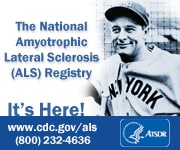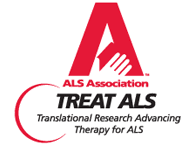
This morning's Wall Street Journal has a wonderful article by Melinda Beck on thankfulness.
Thank You. No, Thank YouMany of us have watched people with ALS who have an incredible sense of gratitude in the face of a disease that clearly isn't fair or easy. Lou Gehrig and thousands of men and women teach us every day that they have an awful lot to be thankful for. It matters not whether the patients are men or women, rich or poor, young or old -- we see incredible grateful attitudes. Being thankful in the face of this disease that forces you to puree the turkey and mashed potatoes takes a special courage. Gratitude won't cure ALS, but I'm sure that Lou Gehrig's attitude of thankfulness helped Eleanor as much as Mom's has helped me.
Grateful People Are Happier, Healthier Long After the Leftovers Are Gobbled Up
It turns out, giving thanks is good for your health.
A growing body of research suggests that maintaining an attitude of gratitude can improve psychological, emotional and physical well-being.
Adults who frequently feel grateful have more energy, more optimism, more social connections and more happiness than those who do not, according to studies conducted over the past decade. They're also less likely to be depressed, envious, greedy or alcoholics. They earn more money, sleep more soundly, exercise more regularly and have greater resistance to viral infections.
Now, researchers are finding that gratitude brings similar benefits in children and adolescents. Kids who feel and act grateful tend to be less materialistic, get better grades, set higher goals, complain of fewer headaches and stomach aches and feel more satisfied with their friends, families and schools than those who don't, studies show.
"A lot of these findings are things we learned in kindergarten or our grandmothers told us, but we now have scientific evidence to prove them," says Jeffrey J. Froh, an assistant professor of psychology at Hofstra University in Hempstead, N.Y., who has conducted much of the research with children.
"The key is not to leave it on the Thanksgiving table," says Robert Emmons, a professor of psychology at the University of California-Davis and a pioneer in gratitude research. And, he notes, "with the realization that one has benefited comes the awareness of the need to reciprocate."
Thank you, brave people whom we have lost to ALS. Thank you, Melinda Beck.










No comments:
Post a Comment